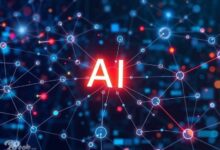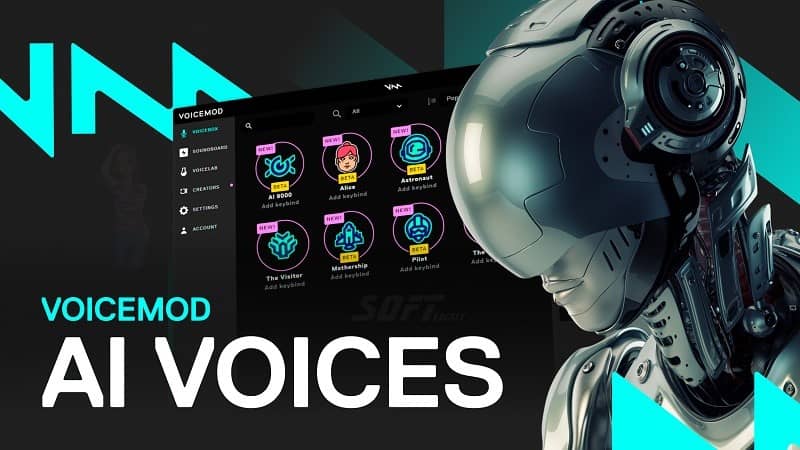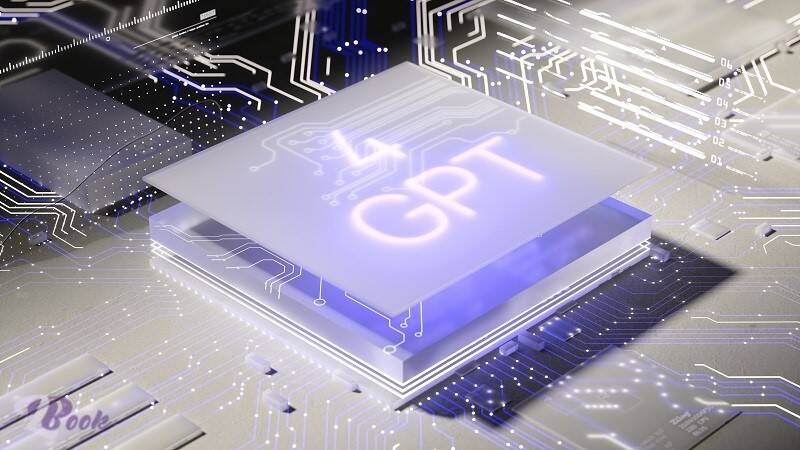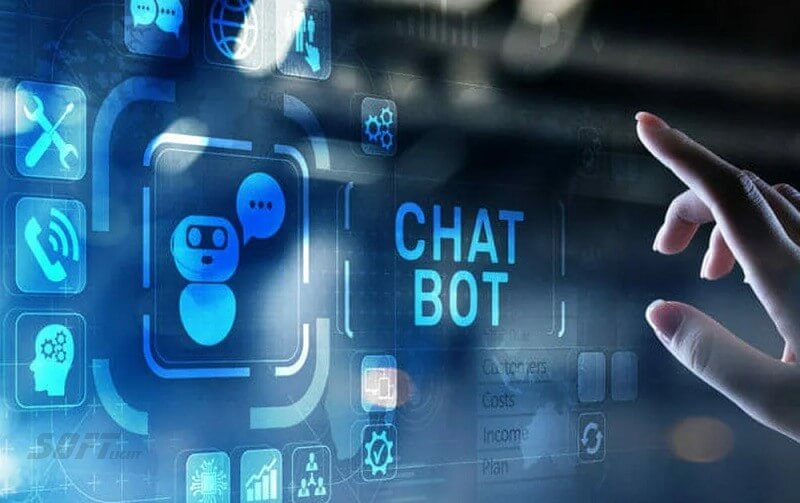Artificial Intelligence: How It Is Changing the World
Artificial Intelligence: How It Is Changing the World
Definition of Artificial Intelligence
Artificial intelligence (AI) is a branch of computer science focused on creating systems capable of simulating human intelligence. The primary goal of AI is to develop software that can perform tasks typically requiring human intelligence, such as learning, understanding, interacting, and making decisions. This definition encompasses various fields, including machine learning, natural language processing, and computer vision.
AI technologies are employed in a wide range of applications, from recommendation systems that suggest products based on user behavior to robots that interact with humans. These systems rely on advanced algorithms and the processing of vast amounts of data to extract patterns and analyze information. This ability to learn from new information and recognize patterns makes AI a powerful tool across various domains.
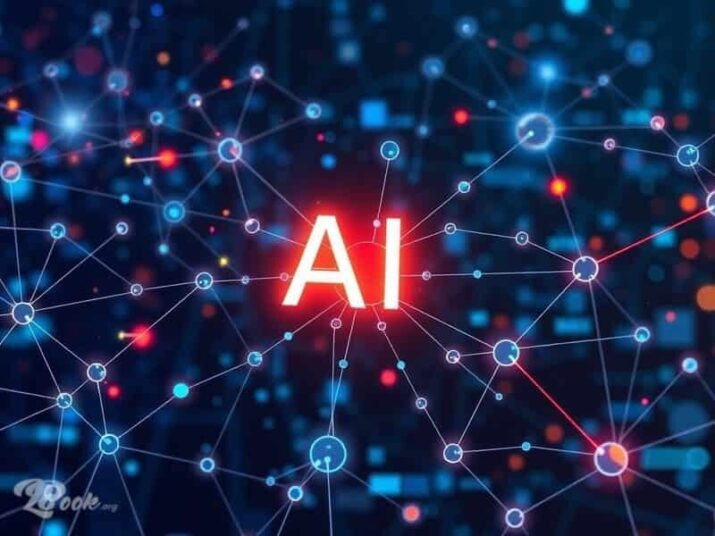
History of Artificial Intelligence
Historical Roots
The roots of artificial intelligence can be traced back to the 1950s, when scientists began exploring how to simulate human intelligence. In 1956, the Dartmouth Conference was organized, which is considered the official starting point of this field. At this conference, new ideas were proposed on how to use software to simulate human thought processes. By the 1960s, programs capable of solving simple mathematical problems emerged, demonstrating the vast potential of this field.
Booms and Busts
Despite notable progress, AI has experienced periods of disappointment known as “AI winters” during the 1970s and 1980s. Investments and interest declined due to unmet expectations, leading to reduced funding and projects. However, in the 1990s, AI research regained momentum thanks to advances in computing and big data.
With the dawn of the new millennium, AI witnessed significant growth due to the emergence of new technologies like deep learning. This surge led to new applications across multiple fields, such as healthcare, transportation, and education, solidifying AI’s position as a fundamental tool in technological advancement.
Applications of Artificial Intelligence
Healthcare
Healthcare is one of the fields that has benefited the most from artificial intelligence. AI is used to analyze patient data and predict diseases, which contributes to improved care quality and reduced costs. For instance, intelligent systems can analyze radiographic images to detect tumors with high accuracy, aiding doctors in making data-driven treatment decisions.
Surgical Robots
Surgical robots utilize AI technologies to perform precise operations. These robots assist surgeons in improving operation accuracy, reducing risks, and increasing success rates. Moreover, such procedures can lead to shorter recovery times for patients, enhancing their overall experience.
Transportation
In the field of transportation, self-driving cars are one of the most prominent applications. These cars rely on technologies like deep learning and computer vision to identify obstacles and interact with the surrounding environment. This advancement promises to improve safety and reduce traffic congestion.
Traffic Management Systems
AI technologies are employed in traffic management systems to enhance traffic flow and reduce congestion. By analyzing data from cameras and sensors, intelligent systems can adjust traffic signals and guide vehicles more effectively. This can lead to reduced wait times and improved overall transportation efficiency.
Education
AI is used in education to personalize learning experiences. Intelligent systems can analyze student performance and provide educational content tailored to their individual needs. This approach helps improve learning outcomes and increases student engagement.
Smart Educational Platforms
Smart educational platforms offer personalized recommendations to students based on their past performance. These recommendations can include additional study materials or different learning methods to help students overcome challenges. Such systems enhance the learning experience and increase educational effectiveness.
E-commerce
AI technologies are utilized in e-commerce to personalize the shopping experience. By analyzing user data, systems can provide tailored recommendations, boosting purchase opportunities and increasing customer satisfaction.
Inventory Management
Intelligent systems assist in inventory management by predicting demand and analyzing purchasing patterns. This can lead to reduced surplus and improved operational efficiency. Additionally, these systems can help make strategic decisions regarding storage and distribution.
Cybersecurity
In the field of cybersecurity, AI is used to detect threats and analyze patterns. Intelligent systems can identify unusual behaviors and alert organizations to potential attacks, enhancing security levels.
Big Data Analysis
AI tools analyze vast amounts of data to discover patterns and threats, allowing for rapid and effective responses to any cybersecurity attack. These systems help identify security vulnerabilities before they can be exploited.

Impact of Artificial Intelligence on the Job Market
Loss of Traditional Jobs
AI raises significant debate regarding its impact on the job market. On one hand, AI can lead to the loss of traditional jobs, as routine tasks are replaced by automated systems. For instance, automation in factories can reduce the need for human labor in certain positions.
Creation of New Job Opportunities
Conversely, AI can also create new job opportunities in fields such as data analysis, software development, and intelligent systems management. This transition requires the workforce to adapt to new skills and learn how to work alongside technology.
Skills Required for the Future
Studies indicate that the ongoing transformation in the job market may lead to increased demand for technological skills. Individuals must continue learning and adapting to rapid changes in professional environments. It is essential to have training programs that help workers acquire the necessary skills to thrive in AI-driven workplaces.
Challenges and Ethics
Privacy and Data Protection
The emergence of AI brings several ethical and social challenges. One critical issue is privacy, as vast amounts of personal data are collected. There must be a legal framework that protects individuals’ rights and ensures that their data is not used in harmful ways. These concerns necessitate adherence to ethical data usage practices by companies and developers.
Bias in Algorithms
Concerns about bias in algorithms also arise. Biased data can lead to unfair decisions, such as discrimination in hiring or unequal service provision. Therefore, developers and AI organizations must work on creating fairer and more transparent algorithms.
Accountability and Transparency
Accountability is another crucial issue, as we must determine who is responsible for the decisions made by intelligent systems. This requires the development of clear legal and ethical frameworks to ensure the safe and fair use of this technology.
Environmental Impact
AI technologies require significant energy to operate data servers and process information. This can have negative environmental effects, prompting the need for sustainable practices in developing and utilizing this technology. Companies should adopt environmentally friendly practices in their system development.
Future of Artificial Intelligence
Technological Innovations
AI is expected to continue evolving, with the emergence of new technologies like deep learning and general artificial intelligence. These advancements are likely to enhance performance and increase the capacity to solve complex problems. Moreover, AI will continue to impact our daily lives by improving services and offering innovative solutions to global challenges.
Integration with the Internet of Things
The future of AI may also involve greater integration with the Internet of Things (IoT), allowing smart devices to communicate with one another and analyze data more effectively. This integration could lead to significant improvements in areas like smart city management and agriculture, where data can be utilized to enhance productivity and reduce waste.
General Artificial Intelligence
General artificial intelligence represents an advanced stage of AI, where systems possess the ability to understand and learn any human task. This could open new horizons for technological development, but it also necessitates deep consideration of the associated risks and challenges. The scientific community must establish clear standards for using this technology safely.
Recommendations for Using Artificial Intelligence
Education and Training
To maximize the benefits of AI, there should be a focus on education and training. Universities and educational institutions should integrate AI concepts into their curricula to prepare students for future challenges. Additionally, companies should invest in training their employees to utilize new technologies and foster a culture of innovation.
Establishing Ethical Standards
Collective efforts are required to establish clear ethical standards for the use of AI, emphasizing transparency and accountability. The community must engage in discussions about how to leverage this technology for the benefit of all. Workshops and conferences should be held to address the ethical issues related to AI.
Collaboration Between Institutions
Governments, academic institutions, and industries must collaborate to develop effective strategies for fostering innovation in this field. Encouraging research and development is essential for ensuring the sustainability of advancements in AI. There should be partnerships between the public and private sectors to enhance innovation and knowledge sharing.
Enhancing Research and Development
Efforts in research and development in AI should be strengthened to ensure that the maximum benefits of this technology are achieved. This requires adequate funding and support from governments and businesses. These efforts should include developing new models, improving algorithms, and exploring new applications.
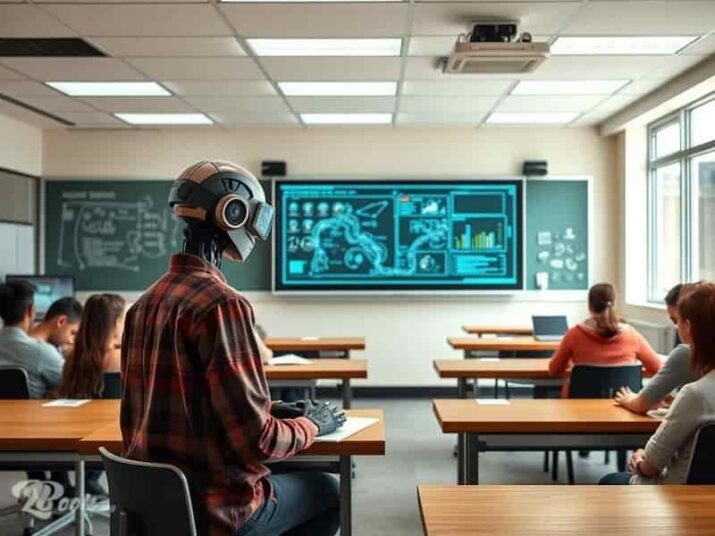
Conclusion
Artificial intelligence is one of the most significant technological innovations of the 21st century, with profound impacts on various aspects of life. By understanding the fundamentals, applications, and challenges associated with AI, we can leverage this technology responsibly and effectively. The future of AI is promising, requiring us to adapt and participate in shaping it to ensure a better world for future generations.
This technology presents a unique opportunity to foster innovation and improve quality of life, but it also demands deep reflection on how to use it ethically and safely. Ultimately, our goal should be to use AI as a tool for human advancement while upholding ethical and social values that ensure benefits for all.
AI represents a significant shift in how we interact with technology, and we must prepare for this change, ensuring it serves the best interests of humanity. Ongoing discussions about how to positively and safely utilize AI, with an emphasis on fostering innovation and respecting human values, are essential.
